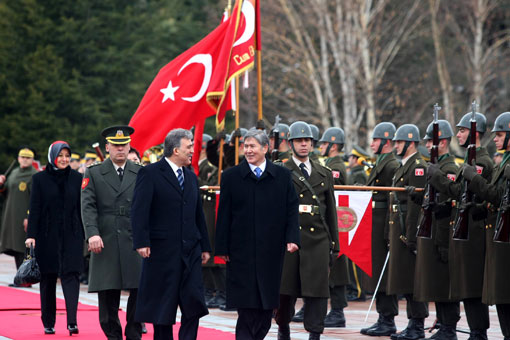Investors flock to build Kyrgyzstan
Money from abroad is expected to curb the republic’s ailing infrastructure and turn the economy around

Kyrgyzstan has been in the news in the last few months as outside investors have announced plans to assist in building multiple infrastructure projects throughout the area.
One factor in the resurgence of international interest in the country is the election of the new president, Almazbek Atambayev. Until recently, Atambayev had given no clues about what his foreign policy, which will help to dictate the country’s course for the next six years, would be. Atambayev, who previously served as Prime Minister, made a visit to Turkey in January, suggesting that his early focus would be on strengthening the ties between the two nations, which may signal a shift away from courting larger nations such as the US and Russia for aid.
Along with the shift in power in Kyrgyzstan, other factors dictate the need for rebuilding. The US recently announced plans to withdraw most of its troops from nearby Afghanistan in 2014. Fears that the lack of a NATO-led security force might lead to area instability and increased cross-country crime, particularly drug trafficking, have caused some agencies to take steps to strengthen the social and economic infrastructure in Kyrgyzstan.
Poverty is also rampant in the country. As many as two million people don’t have regular access to clean drinking water. The mountainous landscape also provides little in the way of natural resources in the country, which has far less to offer in commodities than its neighbouring countries such as Turkmenistan, Kazakhstan, and Uzbekistan.
Infrastructure projects in the pipeline
The World Bank recently announced that it would provide over £10m of funding for the cities of Bishkek and Osh in Kyrgyzstan. The funds would be roughly split between grants and soft loans. The goal of the funding is to improve the country’s infrastructure in the two cities by remodelling residential and municipal buildings in the areas.
In January, Azerbaijan’s SOCAR (State Oil Company of Azerbaijan Republic) and the government of Kyrgyzstan announced that they would collaborate in the construction of a Kyrgyz oil refinery. The facility is scheduled to be completed by late 2013 and is expected to produce two billion tonnes of crude oil annually.
In an attempt to stem a possible rise in border crime, Russia has pledged a £10m aid package to Kyrgyzstan to reinforce country borders ahead of the United States’ withdrawal of troops from Afghanistan in 2014. The country has also pledged aid in a 3-year plan to fight against drug trafficking from Afghanistan.
During Kyrgyz President Atambayev’s recent visit, the government of Turkey agreed to provide assistance to boost Kyrgyzstan’s Defence Ministry, Security Council, and Frontier Service. Part of the aid will include providing funding for the construction of a military school in Osh for training armed forces officers. The two governments also discussed plans for opening joint defence industry factories and facilities for counterterrorism training in the future.













